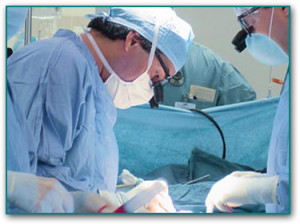FREE CASE EVALUATION: 1-800-632-1404
Tens of thousands of women receive a transvaginal mesh (TVM) device each and every year from numerous suppliers: American Medical Systems, Bard, Boston Scientific, Ethicon,Gynecare, and Johnson & Johnson. Thousands of women have been injured through no fault of their own, including vaginal erosion, pain, urinary problems, bleeding, infection and more. Our attorneys are representing women in all fifty states and Canada who have been injured. For a free case evaluation, call 1-800-632-1404.
Tennessee Attorneys Support Decision
Our team of transvaginal mesh attorneys agree that a U.S. Food and Drug Administration panel’s plan to require pre-market clinical studies for new mesh products may help women who have not yet been implanted with these products. The FDA Panel’s report, however, fails to address the dangers associated with products that are not required to undergo testing to prove their safety before they are allowed to be implanted in humans.
Thousands of women across the country may have been spared financial losses, physical pain and emotional suffering from serious side effects linked to the transvaginal mesh kits if companies had adequately tested the safety and efficacy of these products before being allowed to put them on the market.
For several years, surgical mesh products that are used to treat conditions such as pelvic organ prolapse (POP), including the transvaginal mesh device, and stress urinary incontinence (SUI), including the transvaginal tape TVT device, have reached the market under the FDA’s 510(k) process. This process does not require pre-market clinical studies to show that the device is safe and effective. Instead, the medical device companies must simply show the product is “substantially equivalent” to a medical product currently on the market.
Most manufacturers base this “substantial equivilence” to a Boston Scientific product from the 1990’s that was an abdominally-inserted mesh product, a far cry from products implanted in the vagina.
If you need help from a transvaginal mesh device injury, call us today for help.
The Problem
In 2008, the FDA first released concerns about the safety of transvaginal placement of mesh. From 2008 to 2010, the FDA received three to five times as many adverse reports associated with mesh used for pelvic organ prolapse repair than what agency received from 2005 to 2007 (nearly 1,000 reports of adverse events were received from 2005-2007).
Many of these patients complain because of erosion or contraction of the mesh material (which has been described as being of a similar material as Rubbermaid storage containers). The erosion leads to bleeding, severe pelvic pain, painful (or impossible) sexual performance and a recurrence of urinary problems.
In July 2011, the Food and Drug Administration (FDA) issued an update related to what it called ‘serious complications’ related to the use of vaginal mesh for treatment of pelvic organ prolapse (POP) and stress urinary incontinence (SUI). It is now known that complications linked to transvaginal placement of surgical mesh in SUI and POP patients are not rare and can require multiple surgeries to correct problems related to the use of surgical mesh. In fact, the FDA now says that additional surgeries may actually not be able to repair damage caused by implantation of the mesh.
In other words, the side effects of the mesh placement may be permanent. These complications from transvaginal placement of surgical mesh include:
- -Erosion of the implanted mesh
- -Infection and/or bleeding
- -Pain, including pain during sexual intercourse
- -Problems with organs near the implantation site
Helping You
You may have experienced mesh erosion, bleeding, urinary infections, vaginal scarring, pain during sexual intercourse, failure to conduct sexual intercourse and more. A physician may have tried to remove the mesh and been unable to do so. You may be in excruciating pain, and need help. We are offering free case evaluations to the general public across the United States and Canada. Manufacturers we consider include American Medical Systems, Bard, Boston Scientific, Ethicon,Gynecare, and Johnson & Johnson.
If you received a transvaginal mesh / sling and have been injured, you may be entitled to monetary compensation. Problems include pain, inability to have intercourse,bleeding, mesh growth into the body, mesh erosion, and more. Problems could be irreversible. Please fill out the form to the right or call us so that we can provide you with forms to evaluate your potential case immediately.
We are accepting case evaluations nationwide and in Canada, as well. Please do not hesitate or delay in contacating TVM / TVT Sling and transvaginal mesh attorneys :
CALL: 1-800-632-1404
EMAIL: clicking here
FILL OUT THIS FORM FOR A FREE CONSULTATION AND CASE EVALUATION:
